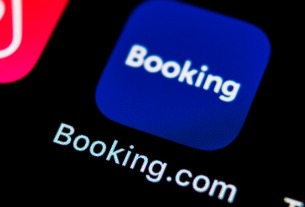Lawrence Hester, co-founder and CEO of tour-booking software company FareHarbor, which became part of Booking Holdings in 2018, is fond of recalling the company’s humble beginnings in Hawaii.
After taking over the operations of North Shore Catamaran in the 50th U.S. state, brothers Lawrence and Zachary Hester launched FareHarbor there in February 2013.
So it’s all true that FareHarbor started out as a family-run business and managed to scale its operations until early 2016 by apparently taking money mostly from friends and family.
But the problem is that by early 2017, FareHarbor had raised around $11 million in funding — including around $7.5 million from investors — yet kept the myth going, and misled people to give them the impression that the company had taken no outside money because it was growing organically and really didn’t have to go fundraising.
However, largely because of an amended lawsuit filed in March against FareHarbor by a limited liability company with ties to tour operator and FareHarbor client Roberts Hawaii, we now know to the contrary that:
By the end of September 2016, FareHarbor had taken investments and issued preferred stock worth $3.45 million, likely held by friends and family, and perhaps others.
FareHarbor had also taken out a $2.5 million loan from Costella Kirsch, a Silicon Valley-based investment fund that has financed at least 90 other companies. It’s our understanding that FareHarbor issued warrants to Costella Kirsch in connection with this financing that gave it the option to take equity in FareHarbor worth 3.59 percent of the startup’s capitalization.
And, around January 2017, FareHarbor raised some $5 million in funding from RSMCFH, the investment vehicle tied to Roberts Hawaii, which is the plaintiff in an ongoing lawsuit against FareHarbor.
The comes to around $11 million in funding, including from friends and family; it includes at least $7.5 million that came from outside the company.
In response to the details of FareHarbor taking $7.5 million in funding, a spokesperson for its parent company Booking Holdings told Skift that FareHarbor executives’ comments on not needing outside funding referred specifically to “institutional venture capital funding,” which the company never took.
Of course, nothing is wrong with raising money beyond friends and family. And raising $7.5 million in outside money is a fairly modest amount of money compared with some of the outsize funding rounds that we are seeing these days in the tours and activities sector from Europe to Asia.
But the issue we’re bringing to the fore is not about legalities, but one of transparency about a company’s trajectory.
It all culminated in travel industry powerhouse Booking Holdings acquiring FareHarbor, which is considered the largest vendor of tour company booking software in the United States, in April 2018 for $249 million in cash and stock.
In fact, FareHarbor, whose executives have disparaged competitors that have taken huge venture capital rounds, used some of Silicon Valley-based Costella Kirsch’s money to acquire Activity Link Systems, a tour software provider, in November 2016.
FareHarbor executives have repeatedly portrayed the startup as lean and bootstrapped and having taken only money from friends and family — with no outside benefactors beyond that.
So it is indeed true that FareHarbor did not take a big venture capital round as did Peek at $40 million, Zerve at $34 million, GetYourGuide at $170 million, and Klook at $520 million, but FareHarbor did take at least $7.5 million in funding from outside the company, including $2.5 million from a Silicon Valley investment fund, Costella Kirsch.
So $7.5 million isn’t SoftBank-type funding, or even the kind of funding that Benchmark or Sequoia would seemingly notice, but it isn’t a typical friends and family contribution, or seed money either.
Read Original Article




